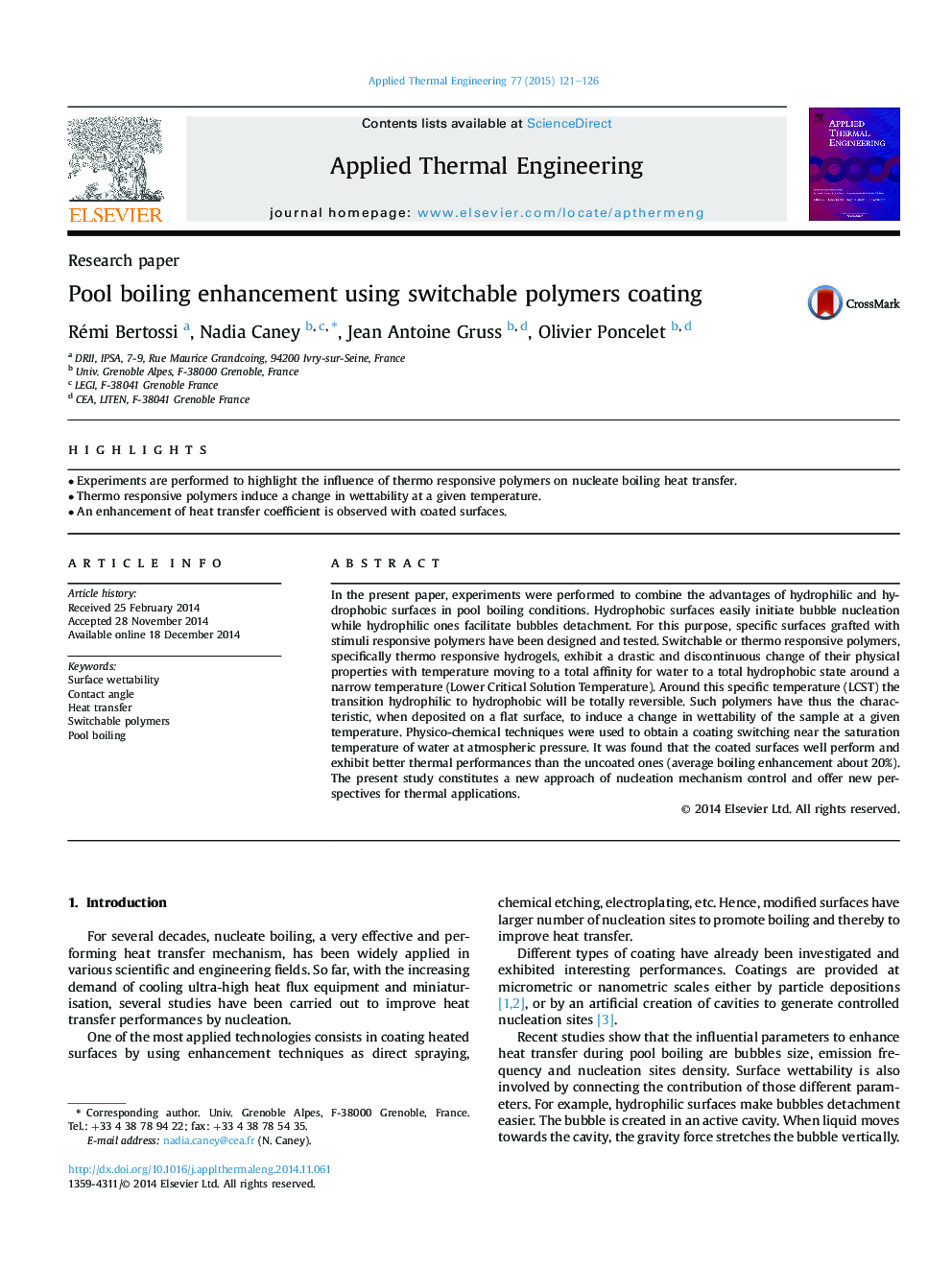| Article ID | Journal | Published Year | Pages | File Type |
|---|---|---|---|---|
| 645717 | Applied Thermal Engineering | 2015 | 6 Pages |
•Experiments are performed to highlight the influence of thermo responsive polymers on nucleate boiling heat transfer.•Thermo responsive polymers induce a change in wettability at a given temperature.•An enhancement of heat transfer coefficient is observed with coated surfaces.
In the present paper, experiments were performed to combine the advantages of hydrophilic and hydrophobic surfaces in pool boiling conditions. Hydrophobic surfaces easily initiate bubble nucleation while hydrophilic ones facilitate bubbles detachment. For this purpose, specific surfaces grafted with stimuli responsive polymers have been designed and tested. Switchable or thermo responsive polymers, specifically thermo responsive hydrogels, exhibit a drastic and discontinuous change of their physical properties with temperature moving to a total affinity for water to a total hydrophobic state around a narrow temperature (Lower Critical Solution Temperature). Around this specific temperature (LCST) the transition hydrophilic to hydrophobic will be totally reversible. Such polymers have thus the characteristic, when deposited on a flat surface, to induce a change in wettability of the sample at a given temperature. Physico-chemical techniques were used to obtain a coating switching near the saturation temperature of water at atmospheric pressure. It was found that the coated surfaces well perform and exhibit better thermal performances than the uncoated ones (average boiling enhancement about 20%). The present study constitutes a new approach of nucleation mechanism control and offer new perspectives for thermal applications.
